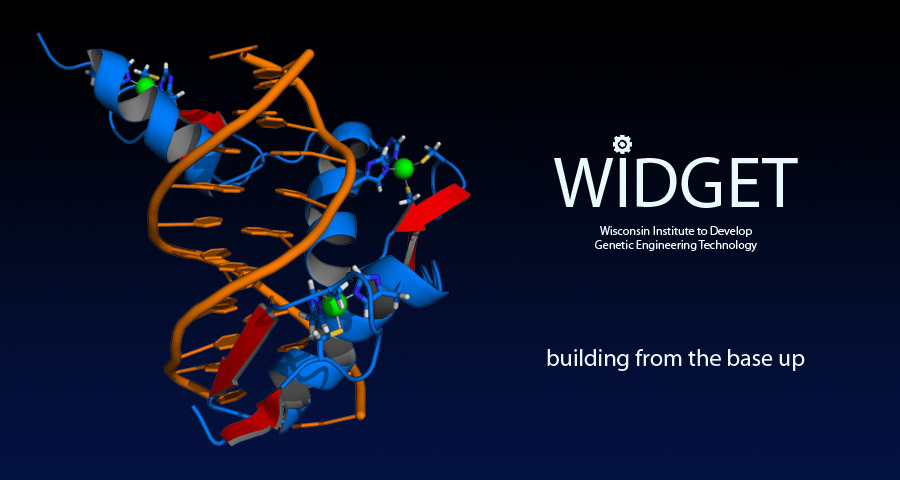Wisconsin
From 2007.igem.org
(Difference between revisions)
(→Project ATF) |
|||
| Line 1: | Line 1: | ||
| + | {| border="0" cellspacing="8px" cellpadding="15" width="100%" | ||
| + | |- | ||
| + | |[[Wisconsin|Home]] | ||
| + | |[[Wisconsin/Project/ATF|ATF Project]] | ||
| + | |[[Wisconsin/Project/BCL2|BCL-2 Project]] | ||
| + | |[[Wisconsin/Protocol|Protocols]] | ||
| + | |[[Wisconsin/Acknowledgements|Acknowledgements]] | ||
| + | |[[Wisconsin/About|About Us]] | ||
| + | |} | ||
| + | |||
<center>[[Image:IGEM_soft_logo.jpg]]</center> | <center>[[Image:IGEM_soft_logo.jpg]]</center> | ||
Revision as of 15:59, 26 October 2007
| Home | ATF Project | BCL-2 Project | Protocols | Acknowledgements | About Us |

Contents |
Widgeteers
Junior Widgeteer
- Nathan Klapoetke
- Sean McMaster
- David Peterson
Chief Widgeteer
- Aseem Ansari
- Clay Carlson
- Franco Cerrina
- Mary Ozers
- Doug Weibel
Project ATF
Doxrubicin is a widely used drug to treat cancer. However one main limitation of its use is cardiotoxicity. Accumulated dose of doxrubicin can cause oxidative stress to cardiomyocytes and trigger apoptosis. Our goal is to up-regulate bcl-2 (a pro-survival protein) and prevent cells from dying under mild stress. We have designed an inducible artificial transcription factor (ATF) that binds to bcl-2 promoter. Currently we are studying cell fate regulation using ATF in mouse fibroblast cells.